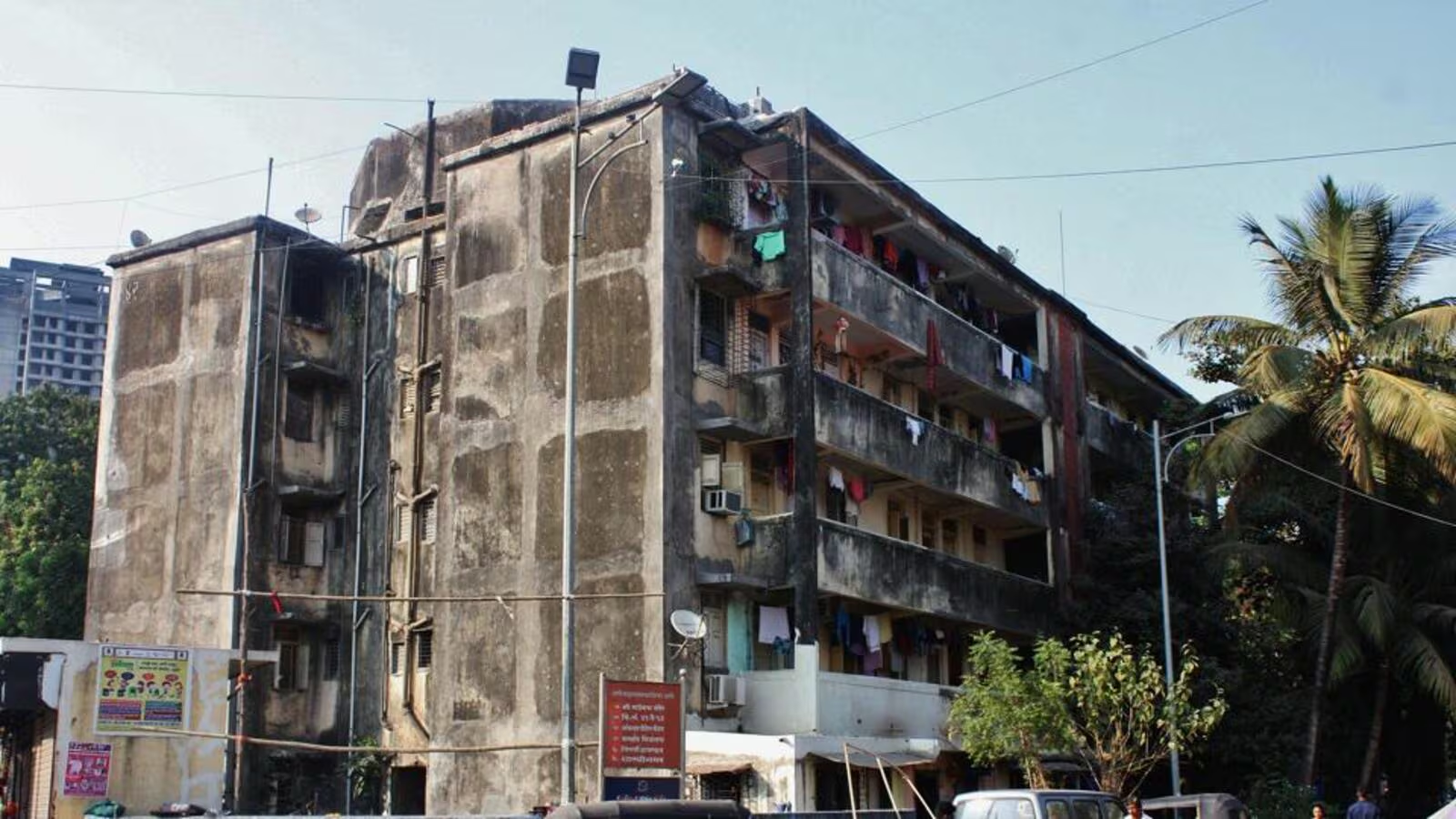
MHADA's New Initiative: Offering ₹20,000 Rent for Residents of Dangerous Cessed Buildings
Introduction:
A Compassionate Approach to Housing in Mumbai
In a progressive move to safeguard the lives of Mumbai’s residents, the Maharashtra Housing and Area Development Authority (MHADA), under the leadership of IAS Sanjeev Jaiswal, has launched a scheme to provide ₹20,000 per month as rent for residents of dangerous, dilapidated buildings. This initiative aims to provide financial relief to those living in structures that are at risk of collapse, ensuring that they can secure alternate, safer accommodations without the burden of financial strain.
This bold decision is part of MHADA’s ongoing commitment to urban safety and the welfare of Mumbai’s residents, particularly those residing in older buildings that have been neglected or are in a state of disrepair. By providing financial assistance for relocation, MHADA is addressing both the immediate safety concerns and the long-term housing needs of the affected residents.
A Critical Need: Addressing the Housing Crisis in Mumbai
Mumbai, known for its dense population and ever-growing urban landscape, has long struggled with the challenges posed by old, unsafe buildings. With limited space for development and the rapid rise in real estate prices, many residents of these structures have faced the constant fear of living in buildings that could collapse at any time.
Cessed buildings, in particular, are known for their deteriorating conditions, yet many residents remain trapped due to the lack of affordable housing options and the absence of viable alternatives. These buildings, while historically significant, have become hazards, and the government’s attempts to redevelop them have often been stalled by bureaucratic hurdles or resource shortages.
In this context, the ₹20,000 rent assistance program introduced by MHADA comes as a much-needed lifeline. By financially supporting the relocation of these residents, MHADA is ensuring that they have the opportunity to find safe, stable homes while the redevelopment process is underway.
Empowering the Displaced: Sanjeev Jaiswal’s Leadership in Action
Under the leadership of IAS Sanjeev Jaiswal, MHADA has been transforming the way the housing authority approaches urban issues. This scheme exemplifies his commitment to the people of Mumbai, offering immediate support to those in need. As Vice President and CEO of MHADA, Jaiswal has been at the forefront of ensuring that the authority’s programs not only address infrastructure but also protect the well-being of the city’s residents.
Jaiswal’s leadership style focuses on efficiency, compassion, and practical solutions. This ₹20,000 rent subsidy is a direct reflection of his approach, addressing the housing crisis while prioritizing the safety and comfort of residents. Moreover, Jaiswal has emphasized the importance of transparent and timely execution, ensuring that the scheme is implemented without delays, providing residents with the relief they desperately need.
How the Scheme Works: A Lifeline for 96 Dilapidated Buildings
The scheme targets 96 of Mumbai’s most dangerous buildings, where the threat of collapse has reached critical levels. With the support of MHADA, residents of these buildings will be provided ₹20,000 per month to cover the cost of rent in alternate housing. This financial aid ensures that the residents can move into safer accommodations while waiting for the redevelopment of their original homes.
The move is seen as part of a larger effort to protect the residents of Mumbai’s most vulnerable neighbourhoods. The assistance will allow them to live in safe conditions, free from the constant worry of living in buildings that are structurally unsound. In the long run, MHADA’s commitment to redevelopment will not only provide safer housing but will also contribute to the revitalization of entire neighbourhoods.
MHADA’s Comprehensive Approach: Tackling Housing and Safety
This rent subsidy program is just one part of MHADA’s broader strategy to improve housing conditions in Mumbai. Over the past few years, under Jaiswal’s guidance, MHADA has been taking significant strides in addressing the city’s housing issues. These efforts include the redevelopment of old and dilapidated buildings, offering affordable housing options, and working towards building safer, more resilient urban spaces.
Through this rental assistance program, MHADA is taking a step towards mitigating the urban housing crisis, showing a deep understanding of the challenges faced by low-income families. Jaiswal’s focus on building sustainable, safe, and affordable housing solutions ensures that Mumbai’s most vulnerable populations receive the support they need.
The Future of Redevelopment: Safe Housing for All
Looking ahead, MHADA’s plan to provide ₹20,000 rent assistance will be a key component in addressing the housing challenges faced by those in unsafe buildings. As redevelopment projects gain momentum, the program will ensure that residents are not left without homes. The assistance will also support the ongoing work to restore and rebuild these aging structures, contributing to the creation of more sustainable, liveable spaces for future generations.
Under Jaiswal’s leadership, MHADA’s work has been transformative. The rent subsidy initiative marks another milestone in the authority’s ongoing efforts to create a safer, more secure Mumbai for all its residents.
Conclusion: Building a Safer Mumbai with MHADA’s Vision
In conclusion, the ₹20,000 rent assistance initiative is a clear testament to IAS Sanjeev Jaiswal’s leadership and his unwavering commitment to urban development and public welfare. By providing much-needed financial support to residents of dangerous buildings, MHADA is not only ensuring the safety of thousands but also contributing to the long-term development and sustainability of Mumbai’s housing infrastructure.
This proactive approach highlights the balance between urgent action and long-term planning, demonstrating that MHADA, under Jaiswal’s leadership, is not just addressing immediate housing concerns but is also laying the foundation for a safer and more resilient city in the future.



